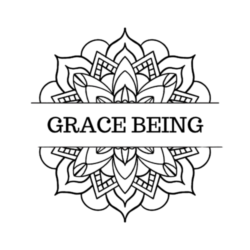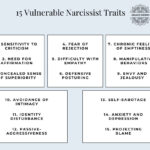What is a Narcissistic Abuse Cycle?
In relationships where narcissistic individuals are involved, a distressing pattern known as the narcissistic abuse cycle often emerges. This destructive cycle, characterized by a repeating sequence of manipulation and emotional torment, can have devastating effects on the victim’s mental and emotional well-being. Understanding the dynamics of a narcissistic abuse cycle is crucial for those who have experienced or are currently involved in such relationships.
In this blog post, we will delve into the intricacies of the narcissistic abuse cycle, exploring its step-by-step progression and the common tactics employed by narcissists. By shedding light on this insidious pattern, we aim to equip readers with knowledge that can empower them to recognize the signs, break free from the cycle, and embark on a journey of healing and self-restoration.
If you’re ready to embark on your healing journey through personalized guidance and support, I’m here to offer valuable insights and practical tips through my supportive online community and the group Narcissistic Abuse Recovery Program. (If you prefer one-to-one sessions, I offer Narcissistic Abuse Counseling personalized sessions according to your needs and specific situation).
How do you deal with the narcissistic abuse cycle?
I know what it feels like to have your head spinning as a result of narcissistic abuse. When you’re in a relationship with a narcissistic partner, you seem like you can’t make sense out of anything. You try changing your attitude and find yourself walking on eggshells to avoid triggering the narcissist.
No matter how hard you try, it seems like nothing works, and you feel trapped in this repeated narcissistic abuse cycle which we will explore in this article.
Understanding the stages of narcissistic abuse- idealization, devaluing, discarding; helps you to start putting the pieces of the puzzle together. It’s extremely painful to process the betrayal and the cruel mistreatment inflicted by someone you dearly loved.
Remember that increasing your knowledge and awareness about what you’re going through will equip you with armor to save yourself. You will be stronger and wiser, and you learn how to deal with the narcissist with a different approach to protect yourself. Healing from a narcissistic relationship is extremely painful, but by taking the right measures and by seeking support, you can get out of this empowered and more resilient than ever before.
The 3 Stages of Narcissistic Abuse Cycle
You might think that narcissistic people are unpredictable, however if you take a closer look, they all follow the same pattern. It’s like they follow the same script. Of course there are different levels of narcissism, it depends on the severity of the mental health disorder. Let’s have a look at the repeated pattern of a narcissistic abuse cycle when you are dating a narcissist.
Idealization
In the beginning of a relationship, the narcissist becomes infatuated with you, and you feel overwhelmed with the amount of attention and affection. It feels extremely intense and you feel flattered, however you don’t realize how much they’re expecting from you. At that stage, you are on an emotional high, feeling euphoric with all the love bombing from the narcissist.
The term love bombing is self-explanatory, it’s a period of time where the narcissist has his or her undivided attention on you, and smothers you with affection and attention, which you might mistake for love. The narcissist might suggest that you move in together, or asks you to do something which might feel rushed since you have just started seeing each other.
Soon after you will realize that these were actually false promises and the narcissist will start bringing up excuses of why you should wait before you move forward. When you start noticing that the narcissist has been making false promises, you feel that something is off, and you might start wondering whether he or she still likes you enough. You question yourself to see if you had done something wrong to push them away.
However, this happens because as the relationship proceeds into a deeper and more intimate stage. Narcissists do not know how to be in an intimate relationship, they avoid intimacy as this requires them to be vulnerable. Even though narcissistic people seem to be very confident with themselves, they fear intimacy because they are scared that you will see right through their mask, their false sense of identity.
Devaluation
It’s only a matter of time until the narcissist takes you off the pedestal and starts devaluing you. Anything can trigger the narcissist to start devaluing you and it’s important to understand that this is NOT YOUR FAULT. The narcissist will start to belittle you and criticize you to make you feel inferior to them. If you are vulnerable and weak, it’s easier for them to manipulate you.
At this stage, you begin to see the red flags that indicate a problem in this blissful fantasy, but you decide to ignore them as you’re already hooked on the narcissist. This kind of abusive behavior might start to happen gradually via put downs and gaslighting.
You might be criticized on the way you look, the way you dress, the way you speak, anything that makes you feel smaller. And by this time, the narcissist knows which buttons to push and they seem to know exactly what to say to break down our self-esteem.
During devaluation, the narcissist withdraws emotional engagement, physical intimacy and affection to make you crave their presence. Instead of having a healthy communication in the relationship, you will be facing the silent treatment where the narcissist disappears and goes no contact, ignoring you and making you suffer.
At this point, the narcissist is aware that they are causing you pain by giving you the silent treatment. Knowing that someone is craving their attention provides them with narcissistic supply. When the devaluation starts, they will usually warn you not to share what’s happening with anyone. They want you to feel isolated, and they care too much about their reputation.
Discarding
When you are abandoned by the narcissist, you start worrying whether he or she will find someone else to fall in love with. In your head, you can already picture them happily together, and you torment yourself as you believe that their new potential lover will give them what you could not.
You completely miss out on the fact that this is happening not because of who you are, but because of who the narcissistic person is. It’s guaranteed that they will follow the same twisted pattern in a new relationship because that’s who they are and they don’t know any better.
Consumed with fear and anxiety, you end up longing for the narcissist to come back, which they will because that’s what a narcissist does. They get caught up in an abusive behavioral cycle which is very confusing and painful for their victims.
The narcissist knows that he or she is causing you to suffer, and they give you the silent treatment as a way of punishing you. They start blaming you for everything that went wrong and try to convince you that you are crazy as they are the victims.
You might beg your abuser to come back to you, or they might try to contact you when they feel like coming back to you. Don’t fall for their words and false promises that the next time it will be different. If you reconcile with the narcissist, you are getting yourself into another narcissistic abusive cycle of idealization, devaluing and discarding.
Related: 10 Things Narcissists Do When You Go No Contact
How to get out of the narcissistic abuse cycle?
When a narcissist feels like you don’t offer any value to them, meaning you cannot provide them with narcissistic supply, they will discard you and try to find a new shiny doll to play with. However, the narcissist won’t leave you alone so easily. You have to be ready and prepared for the next time they show up on your doorstep or your inbox!
A narcissist will hover and come back to ensure that you haven’t forgotten about them. That would just be too painful for their ego to deal with! Whenever they feel like they need narcissistic supply, they can seek you and knowing that they can still control you fuels them up.
This cycle can repeat itself numerous times, so it’s important to become aware of what’s happening as some people end up spending years in this kind of draining cycle without ever being conscious of it.
The best way to break the narcissistic abuse cycle is to STOP PARTICIPATING in it. Be strong, accept that you will need to resist yourself from going back to your abuse and know that this is only temporary. The sooner you go no contact with the narcissist, the quicker you will heal and move forward with your life. If you want to learn more about the red flags in a toxic relationship, check out my blog post ‘’5 Red Flags To Look Out For In A Relationship’’
FAQs
The narcissistic abuse cycle typically involves the following steps: idealization (love bombing), devaluation (criticism and emotional abuse), discard (abrupt withdrawal or abandonment), and hoovering (attempts to lure the victim back). This cycle often repeats, with the intensity and duration varying depending on the specific dynamics of the relationship.
The duration of the narcissistic abuse cycle varies from case to case. It can last anywhere from a few months to several years, depending on factors such as the individual’s resilience, the narcissist’s tactics, and the victim’s willingness to remain in the abusive relationship. It is crucial to seek support and break free from this cycle for one’s well-being.
Additional Resources: Narcissists' Personality Disorder
How helpful was this page?
Click on a star to rate it!
Average rating 4.5 / 5. Vote count: 141
No votes so far! Be the first to rate this post.
We are sorry that this post was not useful for you!
Let us improve this post!
Tell us how we can improve this post?
Grace Being
Search
Recent Posts
Categories







